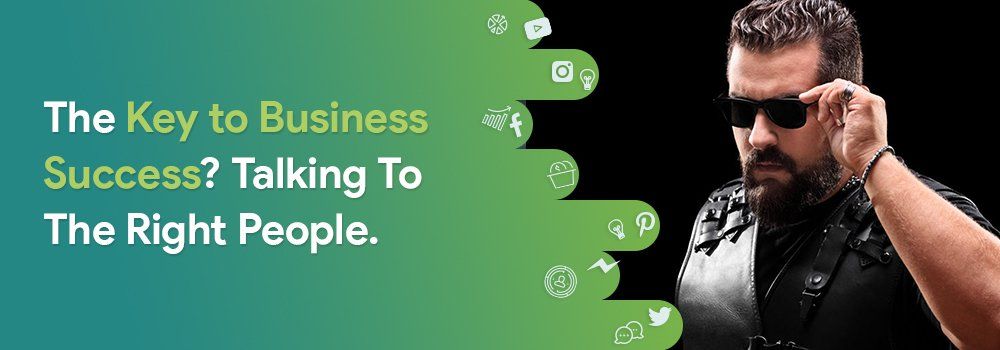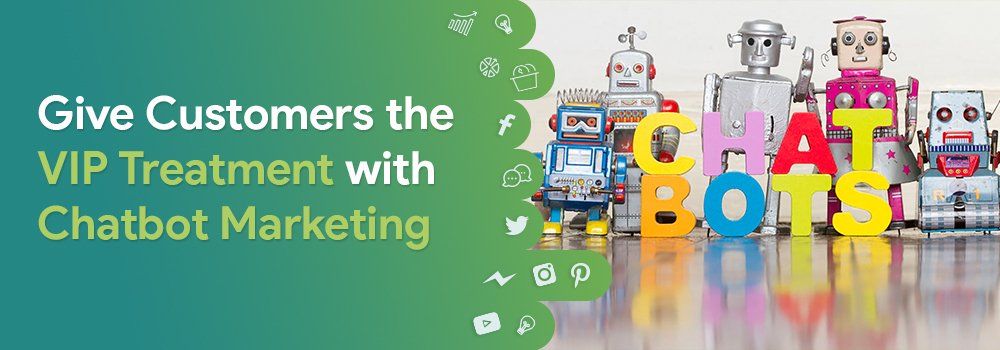
The Key to Business Success? Talking To The Right People
From Brands, to Social Media, to Chatbots, Target is Everything
Any marketing professional knows, the key to branding is the customer.
Also known as target, or persona. His or her importance to a brand is nicely illustrated by comparing Harley-Davidson with Toyota.
Tell a Harley owner their bike is dangerous, and see them smile. Hell yeah. Risk is nothing to the Hog Jockey. Bring on that adrenaline – and that aura of toughness.

But tell a Toyota driver their car is dangerous, and watch your share price plummet. Unreliability and flawed design isn’t what Toyota owners want to talk about.
Here’s the point. The same feature can be a negative to one customer, a positive to the other.
What Are You Really Selling?
As you know from your marketing, “what you’re really selling” usually isn’t what’s on the packet.
A former director of Harley-Davidson clarified what his brand sold – and it wasn’t motorcycles. “Harley Davidson sells to 43-year-old accountants the ability to dress in leather, ride through small towns and have people be afraid of them.”
The same is true of other successful brands. The product may be tangible but the real value is emotional.
You think Coca-Cola is selling flavoured sugar-water? It sells youth.
It’s the Key to Customer Loyalty
This kind of brand thinking, shaping everything from R&D to advertising, is done particularly well by big, successful companies. Of course. That’s why they’re big and successful.
But we’re in the age when customer loyalty is no longer just about repeat sales. Raving-fan customers are increasingly key to organic marketing. So the brand principle should also apply to small business.
Its potential is huge. After all, Coke, Harley-Davidson and Toyota built their brands through mass media with much less sophisticated audience data. Facebook collects 20,000-60,000 data points on its users as part of its ad optimising.
The Opportunity for Meaningful Brand Conversations
It’s a marketing cliché: the Meaningful Conversation. The term gets thrown around without much thought beyond its role in achieving a campaign objective.
But ask Conversologie’s director Jam Mayer about meaningful conversation and she’ll give it real context. As a call centre manager, Jam would build teams that consistently won five-star customer ratings. The trick?

“You have to listen,” Jam will tell you. “Ask questions. Find out what their problem really is. Then you can offer a solution that has them saying, ‘I love you!’”
Social Media: Brand Conversations
Here’s where it starts to come together.
Take the understanding of what you’re “really selling,” and turn that into your brand personality.
Use it to define attitude, vocabulary, sense of humour. Now you have your brand voice. Then bring it to social media and start the conversation in that voice.
This sounds like 101. And it is. But surprisingly, many small businesses don’t use it.
The opportunity to engage with customers at such a meaningful level has never been as good, or as cheap, as it is now. With choices of social channels, interactive media, and those 20,000 data points.
Using a tool like a chatbot, those conversations can become even more intimate and meaningful. But also scaleable.
Chatbots: Built by a Tech, Scripted by …?
Which then poses a question. If the conversation is so crucial, why are so many chatbots scripted by their developer?
Or by a copywriter who thinks Harley-Davidson sells motorbikes? Or at best, written by the company’s operations manager?
Done well, even a simple chatbot can get unprecendented ROI, as we have shown. It just has to engage with the target well enough to create that emotional connection.
Even Jam Mayer’s call centre teams underwent training in their clients’ brand and tone to better connect with customers. A chatbot should be no different.
Done well, with images, emojis, interactivity and personality, chatbots can truly become brand champions.
Enter The Conversologist
This is where, and why, a specialist in conversational marketing is so important. The Conversologist understands the brand, the target, the medium of communication.
She examines objectives, analytics, and feedback. She creates social media and chatbot conversations designed to win the grand prize of business: loyal raving-fan customers.
Conversologie’s social chatbot marketing and chatbot fine-tuning services offer marketing expertise to chatbot customers. But our full range of services includes social media strategy and content, training, Hootsuite business solutions and more.


